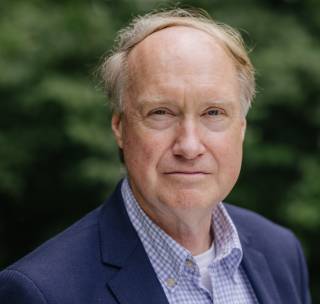Dr Örjan Sjöberg was a Visiting Research Fellow in 2022-23.
Dr Örjan Sjöberg is Professor of Economic Geography at the Stockholm School of Economics, where he is also affiliated with the SIR Centre for Sustainability Research. After defending his PhD in human geography on urbanisation under central planning (Uppsala University 1991) he has continued to take an interest in socialist and post-socialist cities. Often using international political economy or comparative institutionalism approaches, analyses have often been conducted at the systems level thereby also betraying a background in comparative economics. Current research projects focus on post-socialist urbanism and urban theory, urban sustainability and on the integration of newly arrived migrants. Previous projects also include work on labour migration and development, research that led on to consultancy assignments on behalf of ILO, the World Bank and the Swedish International Cooperation Agency (Sida). Örjan’s research articles have appeared in journals such as Annals of the Association of American Geographers; Economic Geography; Environment and Planning A; Geoforum; Geografiska Annaler: Series B, Human Geography; International Journal of Urban and Regional Research; Journal of Historical Geography, Tijdschrift voor Economische en Sociale Geografie; Urban Studies and in several area studies journals. In addition, he is the author of Rural Change and Development in Albania (Westview 1991) and has edited a number of books the most recent addition to which is scheduled to appear in January 2023 (Migration and Integration in a Post-Pandemic World: Socioeconomic Opportunities and Challenges. Springer Palgrave Macmillan, co-edited with Lin Lerpold and Karl Wennberg).
IAS Project
Comparative urban studies have made considerable progress not least thanks to new perspectives, including post-colonial ones, applied to a field long dominated by paradigmatic cases and a focus on the global North. Yet finding the balance between the general and the unique while maintaining an openness to the rich variety that characterises the urban world remains a challenge. Drawing on insights into broad societal processes such as financialisation, or the assetisation that underpins it, has proven helpful but does not resolve the issue of capturing or explaining the diversity of urbanism or even urban expansion in full. One reason for this is that such a focus leaves out residents and other user of the space created, another that it tends to set sight on what happens at the margin: new developments or when parts of the built environment change hands. As towns and cities are collective accomplishments (and, one may add, collective responsibilities) we need to design approaches that have the strength to include all stakeholders who are potentially relevant, in turn allowing us to take a more comprehensive set of values that are created or eroded into account. A broader conceptualisation of business models than that currently favoured would be a step in this direction.
 Close
Close


